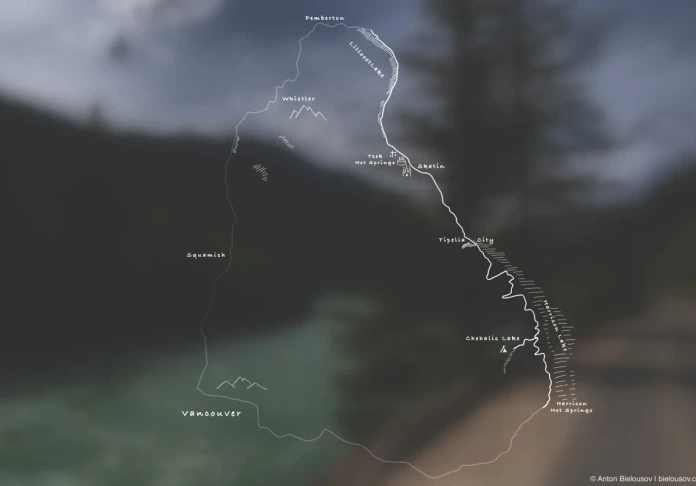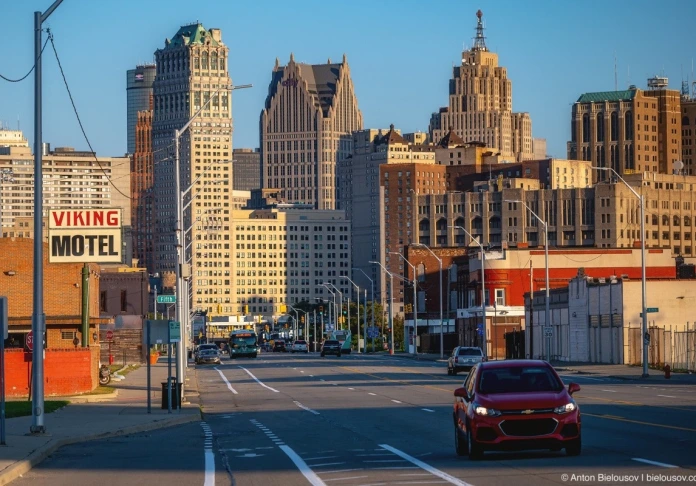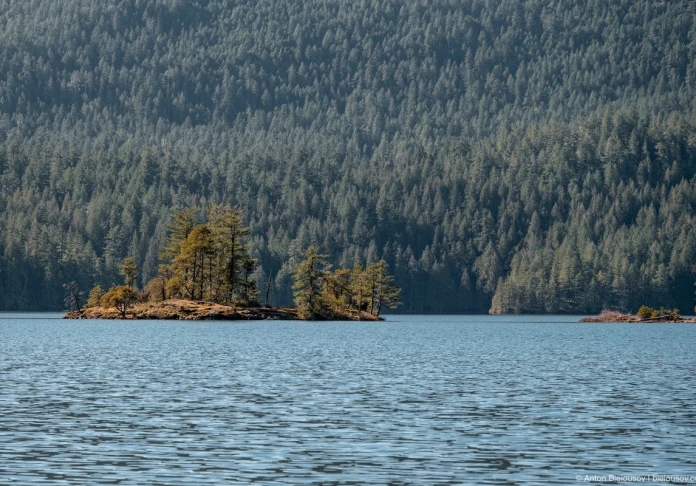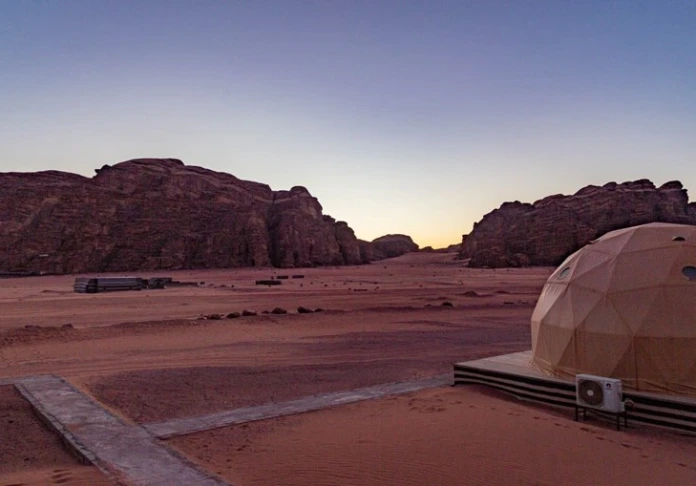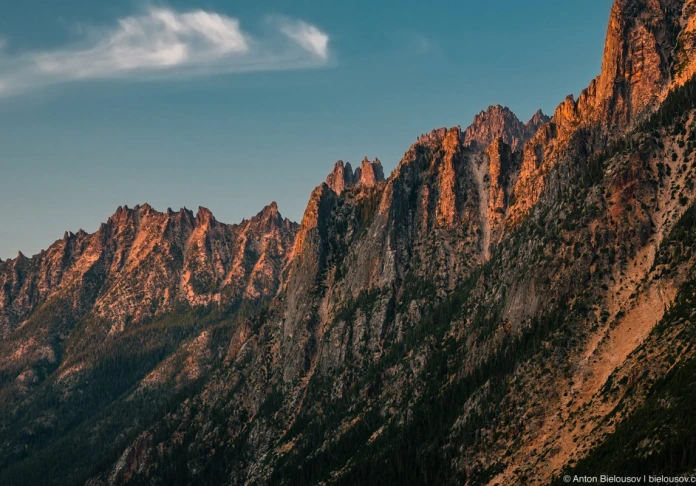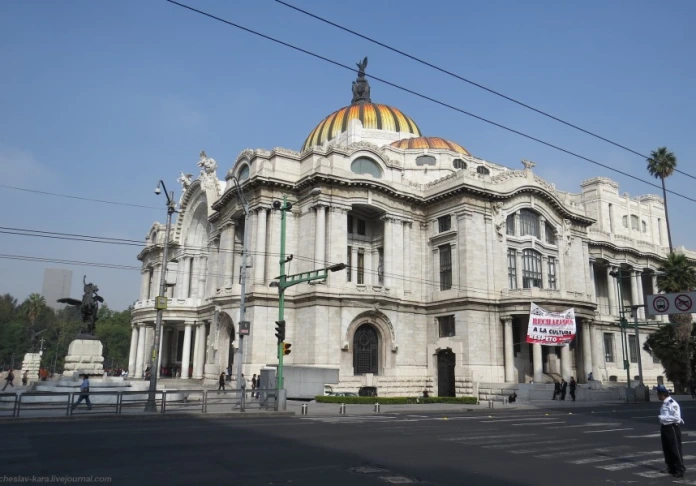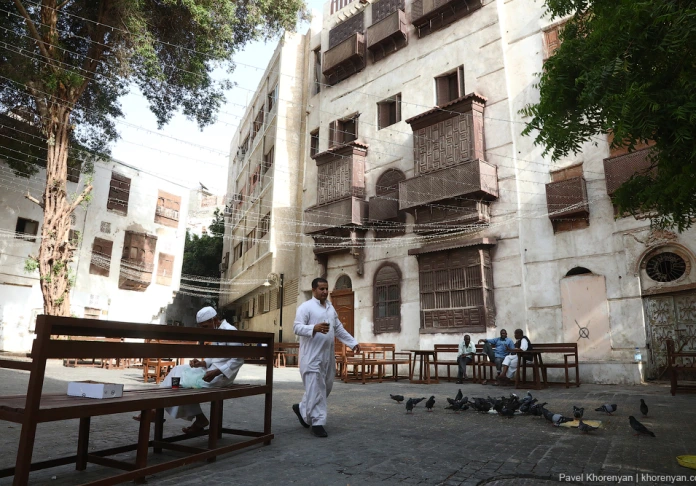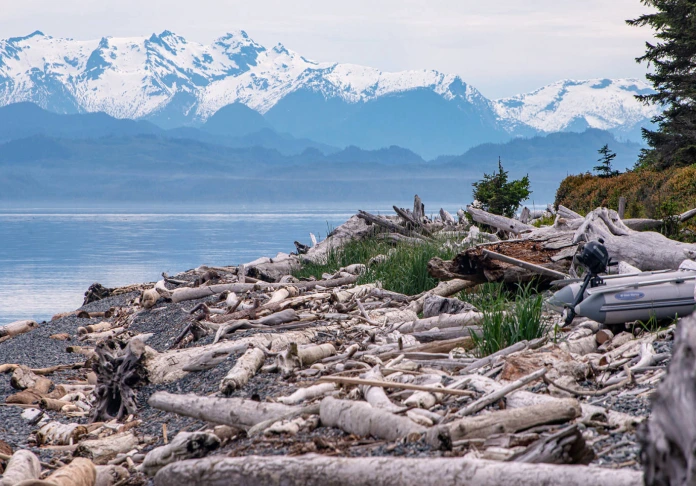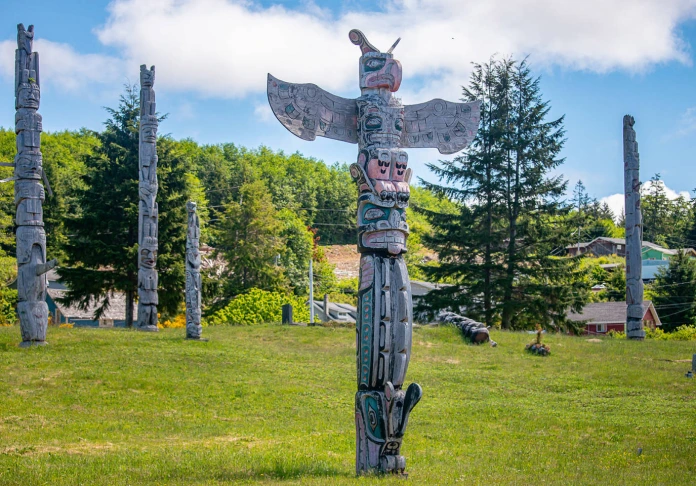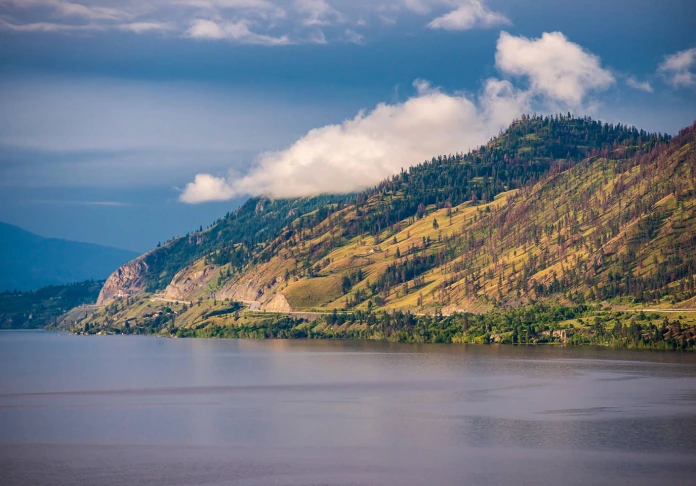Canada - America with a human face
Last year I visited the fourth time in North America, this time including the second largest country in the world - Canada. Although I was only in the major cities and the hinterland of Canada did not see an overview of this country, I can well do.
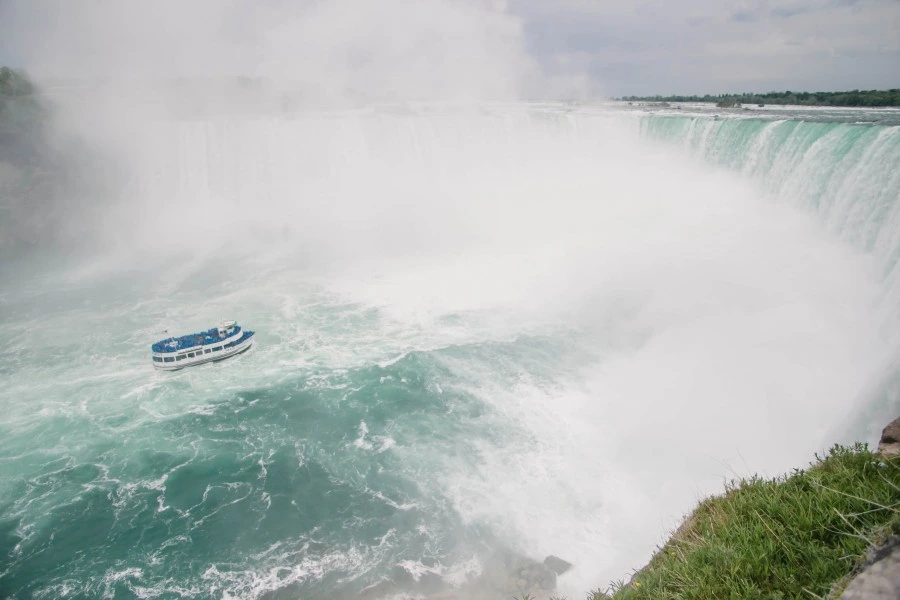
Visas to Canada for citizens of Russia at the moment the second in complexity only to Australia. If we reject the country where a visa is difficult to get because of their closeness, not for fear of illegal immigration (like Saudi Arabia), then the complexity can be understood fully objective indicator percentage of failures - in Canada, about 25%. For comparison, in Australia, 40% in the US - 11%, in the Schengen states - 1-2%. The general idea is similar to the United States - plus you are a large number of countries visited (confirmed by scans of passport) and a large amount of money (confirmed by a certificate of employment and a statement from a bank account). Tickets and hotel reservation is not needed, it is sufficient distribute the approximate route of days. It seems that in Canada there zamorochennoe requirement that all documents translated into English, must be notarized, but I have not encountered this problem because all I sent, was originally in English. In addition to these documents need to fill out a standard questionnaire and send it all through the site. As I understand it, it's considered somewhere in Canada, so you need all in English. The site specified waiting time consideration, in my case it turned out to be absolutely precise - exactly on the ninth day I received a letter of approval. In Canada, as in the US, there are "administrative verification", so that some people have bad luck, and their visa application is considered for several months. in my case it turned out to be absolutely precise - exactly on the ninth day I received a letter of approval. In Canada, as in the US, there are "administrative verification", so that some people have bad luck, and their visa application is considered for several months. in my case it turned out to be absolutely precise - exactly on the ninth day I received a letter of approval. In Canada, as in the US, there are "administrative verification", so that some people have bad luck, and their visa application is considered for several months.
The visa fee exactly 100 Canadian dollars (about 80 US).
Following the approval of the visa it is necessary to go to Moscow to the visa center in the industrial zone on Savelovskaya, surrender passport, pay about 1,500 rubles for a "forwarding", and pick up a visa pasted in a few days. Visa is usually given until the end of the passport, in particular, I now have nearly 9 years of travel to Canada.
The border seemed quite relaxed. At the Montreal airport was almost no queue, you need to scan your passport and be photographed in a special machine, it loads the data of the visa. The border guard asked if I'm taking with them food. At land borders, also passed quite easily, but still asked a few questions - we can assume it is part of the local culture of small talk.
Currency
The Canadian dollar (will write CAD, as well as the $ sign will always denote the US) is currently down and is 0.8 from the US. And there was a time when he was more then in Canada was significantly expensive, and now plus-minus as well as in the United States on many points.
I only saw the bill 5, 10, $ 20, although there is still 50 and 100. 1 and $ 2 as opposed to America only coins. Coins of 1 cent is not to go, all prices are rounded up 5 cents.
ATMs charge a fee for withdrawing 2-4 dollars.
Housing
Housing in Canada, in my experience turned out to be much cheaper than in the US (which is anyway the main item of expenditure in the journey to these countries). In Montreal, I shot airbnb only $ 20 is very close to the center (Plateau area), and it was not the only proposal with a similar price. In Toronto, a little more expensive, and it was far from the center, it was necessary to go to the underground 30 minutes and then 20 minutes on foot or a few stops on the bus. In Ottawa, I lived in a hostel, because for one night, but there are too many options. The Niagara Falls are just napryazhenka housing, especially on the weekend, you need to book early. In Vancouver, I lived in a hostel, because I had it in the heart because of the logistics, but on airbnb there too there are options around $ 25-30. Hostels, incidentally, also is cheaper US: in the heart of Vancouver 30 CAD = 24 USD,
Even the usual hotels and motels in Canada are much cheaper, I saw in Toronto private rooms from 50 Canadian dollars to the US in large cities more expensive and a half to two times.
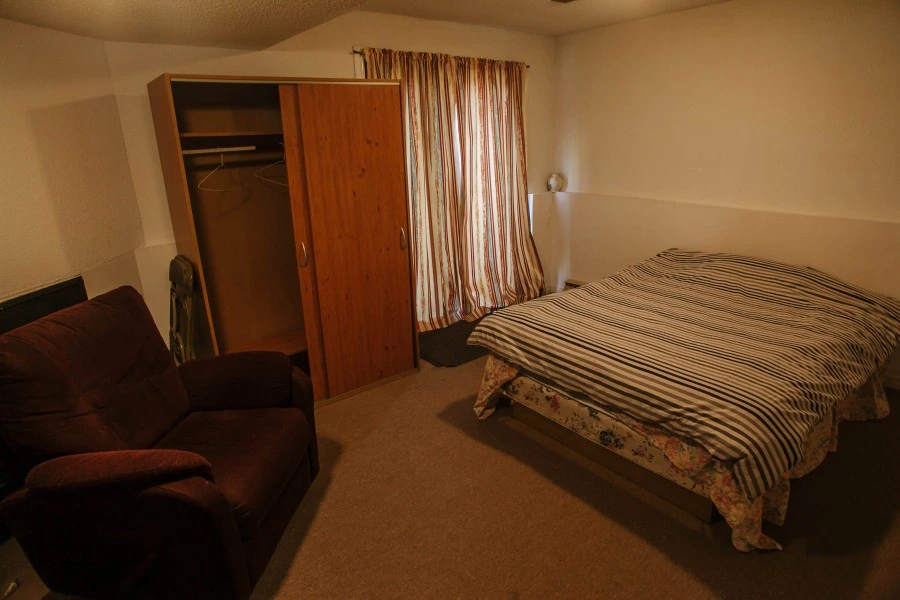
Vehicles
I was in the most populated parts of the country, so the problems with public transport experienced. In general, Canada big country, a big part of it populated by little, and there can only move on the machine, and in the far north only by plane.
Flights within Canada are not particularly cheap, usually more expensive than flights of similar distance south of the border. No loukost. But, of course, to move over long distances is much cheaper flights land transport. In principle, build marshrutets of several types of flights Toronto-Winnipeg-Calgary-Vancouver the price is quite godly.
Trains in principle there across the country from the Pacific to the Atlantic, but they are expensive. I end up on a train has never passed, even though he was at all major railway stations (except Ottawa), koi look traditionally monumental. Intercity trains also amusing form:
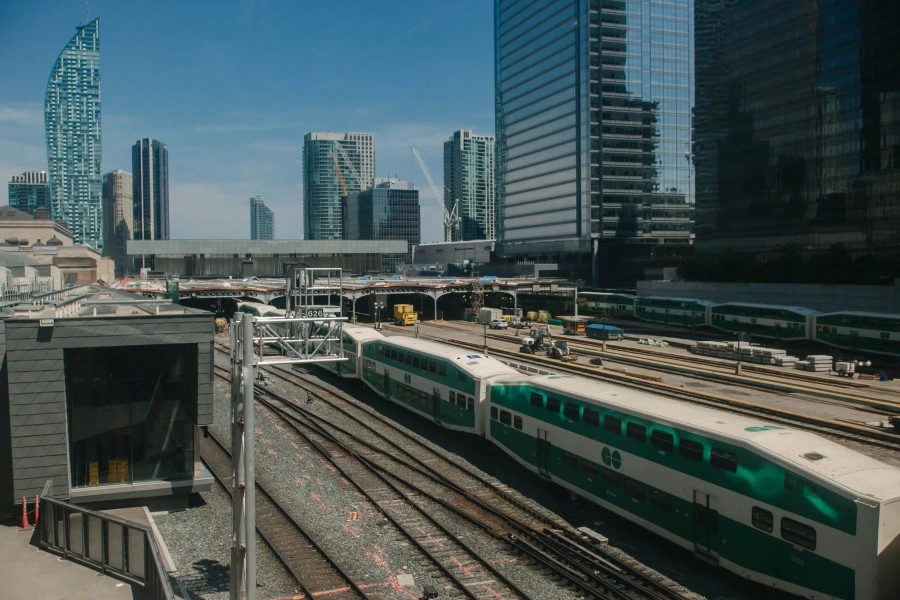
Trains are a half to two times more expensive than buses, and they also have to buy tickets in advance via the Internet, or even overpay twice.
Intercity buses run regularly between the major cities outside Quebec area - Niagara Falls them becomes much smaller. In the Atlantic provinces the message more or less, to the west of Toronto - a little, there is too great a distance. Vancouver regular bus services across the border in Seattle. I traveled mostly on Greyhound buses. In Quebec, they serve only to Montreal, then to Quebec city buses "Orleans Express". There are many familiar Megabus rasprodazhnymi with cheap tickets, but the route from Montreal to Toronto misses Ottawa that does not suit me, and Niagara Falls have the price was the same as in the Greyhound.
Sample prices for comparison. Montreal-Quebec by bus costs about 27 CAD one way, to go three o'clock (250 kilometers). The train in the same direction is worth more than CAD 100 at the box office, on the Internet if the advance is about 35 CAD (per month) or 57 CAD (per week). In general, the bus turns a normal price, how about the price of travel in Italy or Spain.
At Greyhound, I pay the price: Montreal-Ottawa 27 CAD, Ottawa-Toronto 46 CAD, the Toronto-Niagara Falls 16 CAD, the Seattle-Vancouver round-trip 41 USD.
In urban public transport standard stands 3-3.50 CAD area, that is quite expensive. But there is salvation day travel. In Montreal, I paid CAD 10 per 24 hours, but it is a way from the airport, if only in the city, it is cheaper. In Toronto, a ticket for the calendar day worth 12.50 CAD. Vancouver 10 CAD. In these three cities, the normal subway system a few lines can be a good ride. In Quebec, there is only a bus, I bought two single tickets for the product range CAD 3, to go to the waterfalls, but day ticket there too, in principle. In Ottawa, the most expensive bus fare - 3.50 CAD. In all these cities, public transportation is quite convenient, even buses quite a usable. For example, in Toronto, in the area where I lived, which consisted mostly of single-storey private houses,
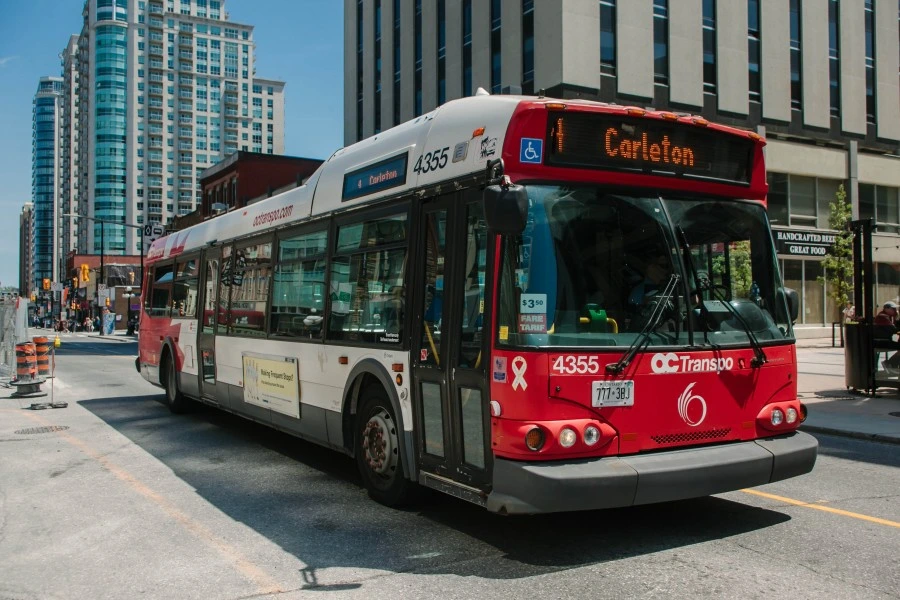
Food
Specialties Canada - sauce "poutine" and the maple syrup. Putin is a sauce for french fries, it is served even in any McDonalds, you can also buy in the store.
I have the impression that in the major cities in Canada, a large supermarket within walking distance, than in the US, at least I never had to go for a meal on the subway across town. The range in supermarkets is quite good, about this, perhaps, is to make a separate review post. Prices are much higher than in Russia, plus virtually no sales of shares and (in the best case to throw 20 percent).
For example, the food in the photo in the amount worth 22 Canadian dollars. Meat is not expensive, like in Russia, but such eggs cost $ 3 (here, they are sold in packs of 12 pieces). And the same amount of ice cream cost of the bank, I could not resist to buy. A pasta cheapest I got for $ 2 500 grams.
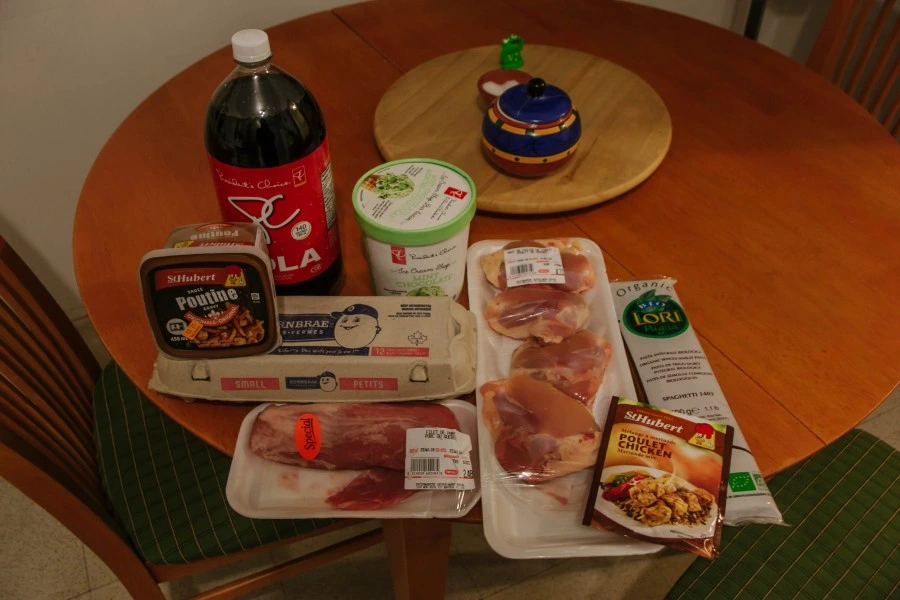
As for restaurants, I in them almost did not go, using instead of the full skill of cooking that in North America, save a lot of money. Eat at McDonalds is not particularly cheap, 8-9 CAD over the menu.
The only restaurant where I went - Japanese buffet in Vancouver (called Shabusen). CAD 17 per day where you can get unlimited amount of land than I used to eat properly.

Internet
Internet in Canada is expensive, even the guidebooks recommend to buy a sim card in the US, if you are traveling from the south. One gigabyte costs $ 30. I enjoyed Simcoe Dreams - it MBs charging, one gigabyte in Canada costs 35 euros, so I'm not particularly scatter traffic.
What to see
Canada, like Russia, is large, but sparsely populated, and most of the territory in the far north, where even almost no roads. For the life of this country is more humane than America - here in Europe universal free medical care, all sorts of social sphere. The whole infrastructure is much closer to the familiar us to Europe, especially in French-speaking Quebec. Yet here is more loyal than in the United States, an immigration policy that is clearly seen on the population of Toronto and Vancouver.
Walk summarized by region:
Quebec - region, where they speak French. I came here in a big exciting city of Montreal, with the old center and the skyscrapers.
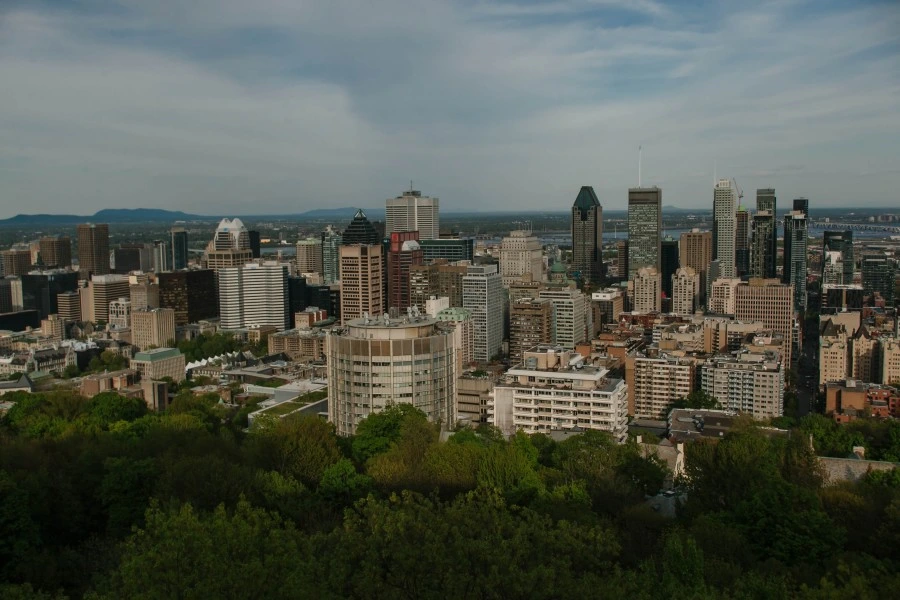
Also interesting is the old capital city of Québec - probably from all the cities to the north of Mexico, it is most like a medieval European town. In addition, Quebec extends still pretty far north.
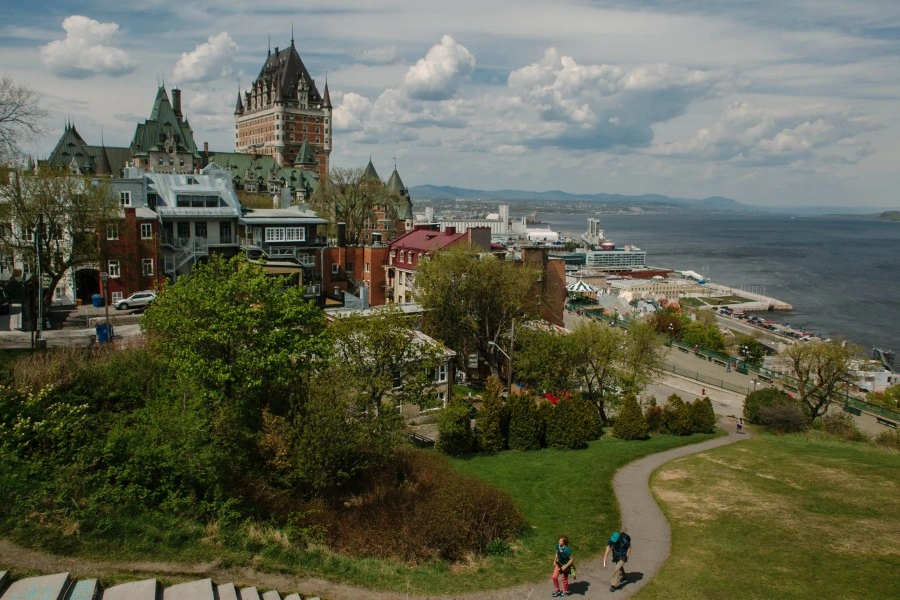
Atlantic provinces - to the east of Quebec three small staff, and close from there the island of Newfoundland. Probably, if I come again to Canada and will be on the car, I go to this area, there must be a lot of beautiful Nordic scenery, on the other side of the Atlantic in Ireland and Scandinavia.
Ontario. Here is the largest city of Toronto - a typical North American metropolis with skyscrapers and the private sector.
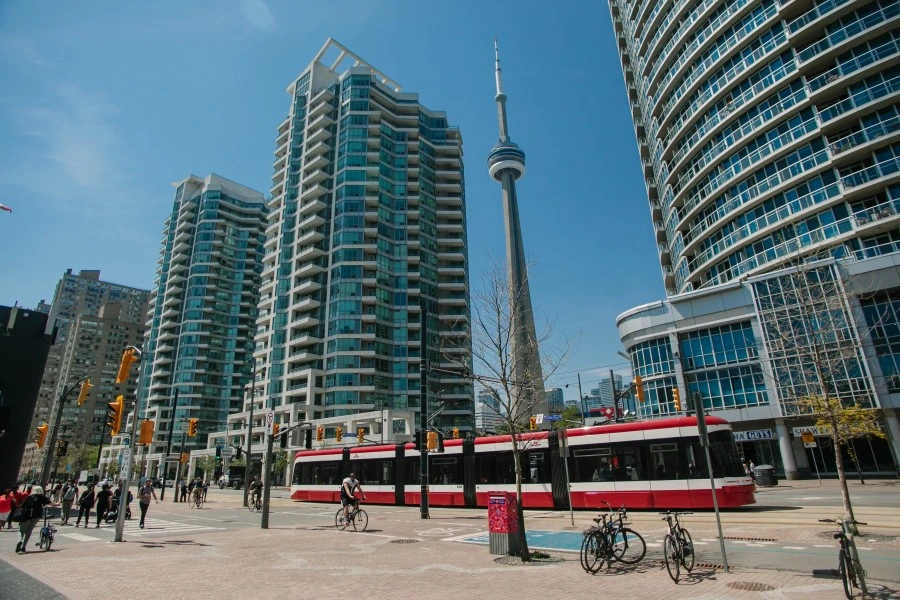
And also the nation's capital of Ottawa - right on the border with Quebec.
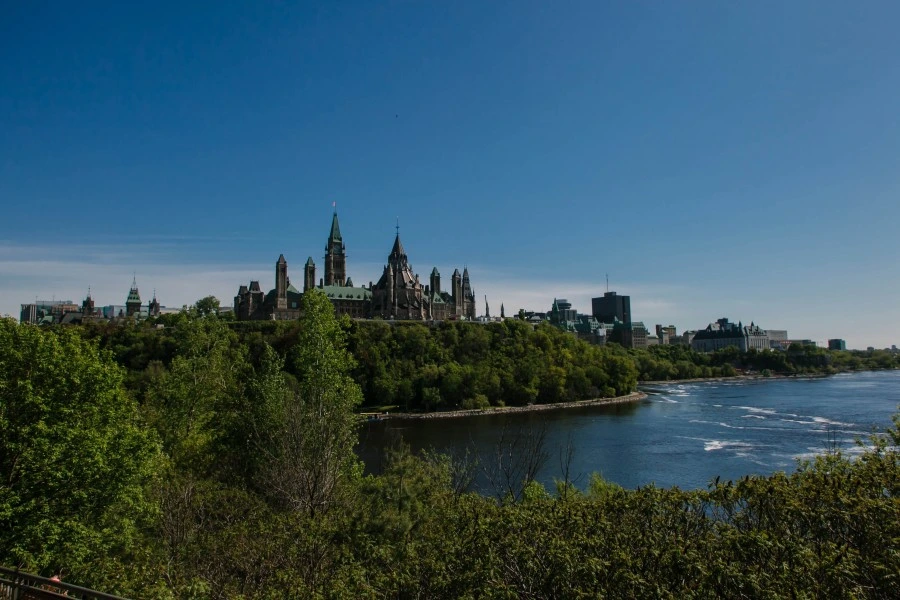
In a couple of hours drive from Toronto to the US border are Niagara Falls - with a huge margin the most visited place in Canada in which Canada and ends for many tourists.
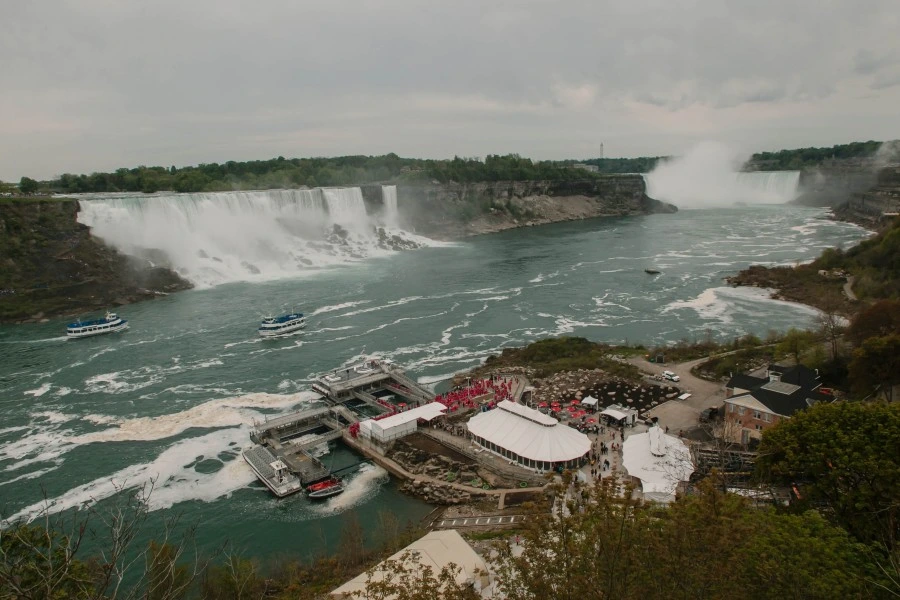
Prairie - west of Ontario and beyond Manitoba, Saskatchewan. Not rich in sights of the region, however, as US states south of the border at these locations.
Alberta - are the prairie ends and begins the Rocky Mountains, you can visit two of the most famous national parks in Canada - Banff and Jasper. Very desirable car.
British Columbia - a mountainous region on the Pacific coast. There is a large city of Vancouver, as well as ski resorts, where prices are so fierce that the resorts in Switzerland you will seem cheap.
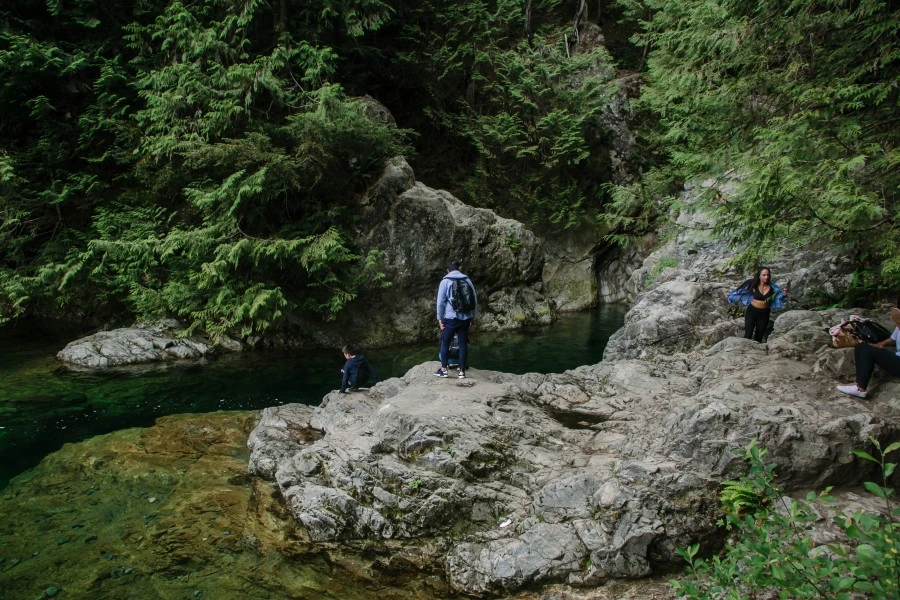
Far north - three huge province, where there are almost no people and roads. You can drive to the Yukon on the way to Alaska, and the Arctic islands can only be reached by plane.
in total
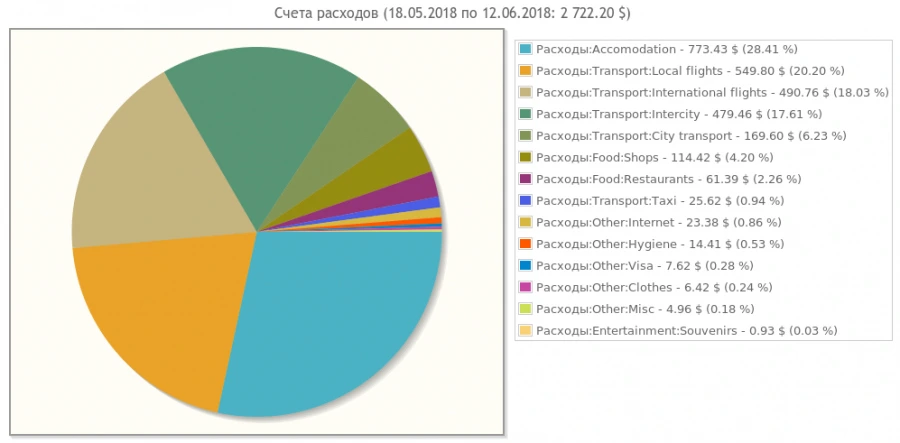
On the sum of trip was not cheap. For about 25 days in Iceland, Canada and the US, I spent about $ 2,700, of which more than 60% of the cost transport: flights, buses, and another 30% cost housing (an average of $ 30 per day, by the standards of the continent's budget - like in Western Europe). Cost of food went funny because I'm ready - $ 5 a day is enough for a constant power supply good caruncle. From $ 60 to restaurants half - two sushi dinner in Vancouver.
If you select separately Canada, something like this look like spending 7 days in the eastern part of the country (two days are not taken into account in Vancouver)
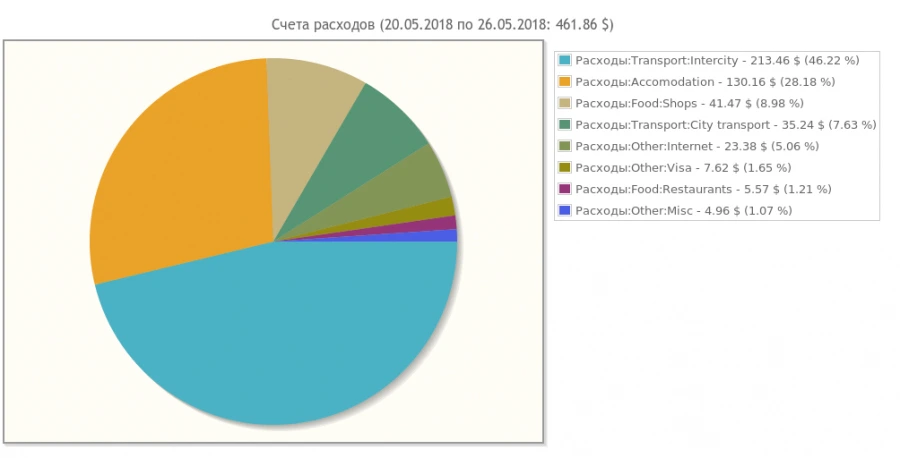
It is representatively - more than half of travel (bus only), 30% for housing.

